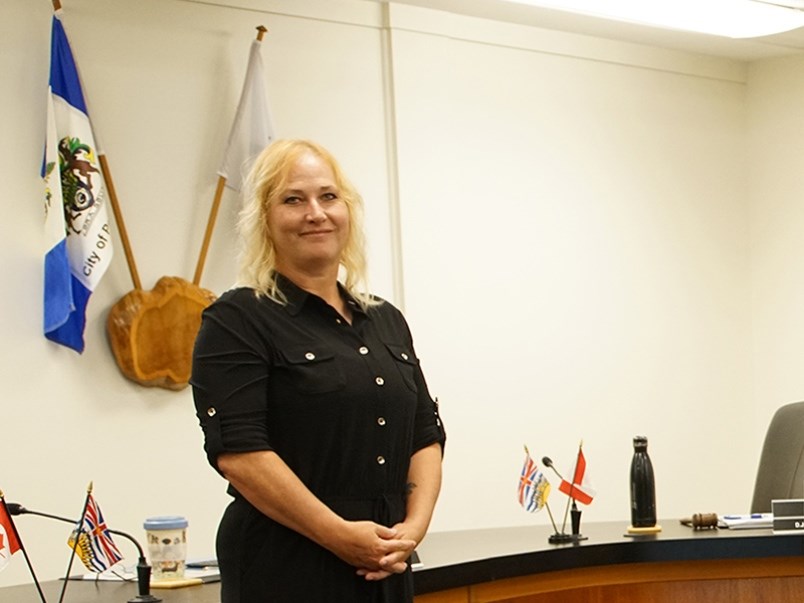City of Powell River’s climate change mitigation and adaptation committee’s mandate has ended so its chair reported on the group’s accomplishments.
At the July 21 city council meeting, councillor CaroleAnn Leishman, during a report on the minutes of the committee’s last meeting on June 29, said its terms of reference had been completed.
Leishman said there had been a good news report from sustainability planner Ana Lukyanova, who provided an overview of all the climate action projects and grants that have been undertaken in the last few years.
“Basically, since we’ve had a fulltime sustainability planner, we have tried to tabulate all of the grants, the greenhouse gas emissions,” said Leishman. “The calculation of the quantifiable savings on our utility bills, for example, are $135,300 year-over-year savings on utility costs to the taxpayers.
“We have reduced our greenhouse gas emissions by 577.54 tonnes of carbon per year, and that’s only the quantifiable ones. There’s so many other ways we are probably also helping reduce, but that is a huge number.”
Leishman said in grants and incentives, the climate action department has brought in $5,450,316, including in-kind and Powell River Community Forest matching funds.
“It’s just absolutely amazing,” said Leishman. “We’ve really shown other local governments that it pays to have somebody paying attention to these things. [Lukyanova] has caught a lot of things that generated money for the city, so it’s not just reducing carbon emissions, it’s money in the bank.”
Leishman said Lukyanova also highlighted to the group the city had worked with BC Hydro to install the electric vehicle fast charger at the north harbour, which was installed at the electric utility’s cost. The cost of those chargers is typically between $50,000 and $100,000, she added.
“We were also successful in winning the 2020 climate and energy action award from the Community Energy Association during the Union of British Columbia Municipalities convention for corporate emission projects,” said Leishman. “We were also awarded the 2021 FortisBC efficiency and action award. It was a nice reminder to see all of the good things the committee has helped support.”
Leishman said a final report will come forward for information, with ideas committee members came up with on ways that would align city bylaws, policies and even operations, with suggestions on how to get to net zero by 2030, and some targets, by 2050.
Leishman said the committee supported a motion that city council accept the CleanBC Roadmap to 2030 for achieving net zero targets specific to municipalities, and direct staff to report back on how bylaws and policies can be aligned to achieve the targets set by the province.
Leishman offered thanks to the committee members who stuck with it and put in so much time and dedication.
“It was a fantastic group and we were really lucky to have such talent, knowledge, expertise and passion,” said Leishman. “It was always a joy to participate in those meetings.”





